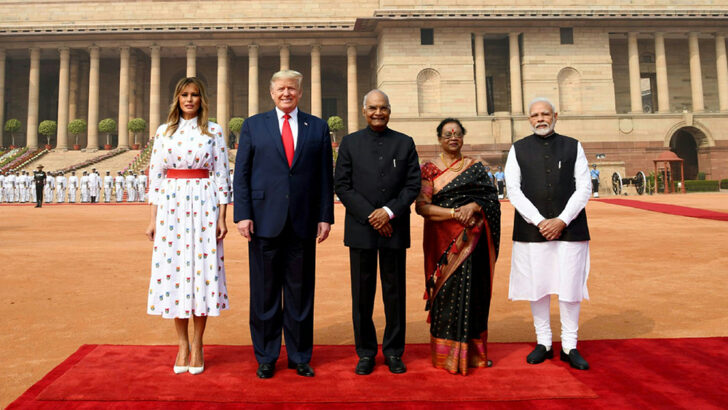When David Lodge died at the beginning of this month, he was hailed, in the obituaries, as the leading English Catholic novelist since Graham Greene and Evelyn Waugh.
Mr Lodge, who was 89, had indeed written a famously hilarious novel about a young Catholic married couple, in 1965, struggling with the “Safe Period” of fertility control, and constantly in a tizz about it.
Adam and Barbara already have three young children, live in London rented accommodation (not unusual at the time) and are short of money and space. Adam, an academic, is terrified of fathering a fourth child, and becomes obsessed with whether his wife’s menstrual period has arrived; feverishly, he sees thermometers everywhere (to test whether ovulation has occurred, thus naturally avoiding a pregnancy).
He hopes that Vatican II, begun in 1963, will make the Catholic ruling on birth control more “humane and liberal”. He envies non-Catholic couples who can merrily go about contracepting without disturbing their consciences (although it turns out they may have their own marital problems too.)
Loyalty
There’s a good deal of parody, pastiche and over-the-top comic passages in this classic and entertaining novel. Adam’s Tipperary-born parish priest, Father Fintan, who denounces contraception fiercely from the pulpit, is described “the Priest Most Likely To Prevent The Conversion of England”; and there are some very funny farcical scenes involving embarrassments, fantasy and crazy coincidence, in the tradition of the genre.
This was, indeed, the attitude of most married couples in those days: some babies were surely “unplanned” – but parents made the best of it”
But there’s also a central point, which Lodge himself makes in an afterward: these Catholic married couples who struggled with Natural Family Planning really did want to be loyal to the Church’s teaching, and they genuinely did value marriage. (He draws on personal experience, though the narrative isn’t exactly autobiographical.) Moreover, at the end of the day, even Adam, fretting about the chances of his wife being pregnant again admits that if it happens “they’d make the best of it”.
This was, indeed, the attitude of most married couples in those days: some babies were surely “unplanned” – but parents made the best of it. Indeed, I know middle-aged adults happily living today – well-balanced and doted on by their parents – who were “mistakes” from a miscalculated “safe period” conception.
Analysis
David Lodge wrote a subsequent novel called “How Far Can You Go?” in which Catholic couples discuss the perils of relativism, and how, once you unravel the structure of a moral framework, perhaps the whole system may fall apart? This follow-up was published in 1980 and won the Whitbread Book of the Year Award.
But maybe this question of “how far can you go?” was asked too prematurely; more time needed to elapse before examining the result. If a novelist were to revisit this scenario in the 2020s, he would indeed have a rich source of material.
He (or she) would observe, in the field of sex and pregnancy, IVF babies, surrogate babies, egg donation, sperm donation – and contraception itself erased by the focus on abortion, elevated as the exercise of autonomous choice.
The comic novelist today could riff on the widespread decline of marriage, the rise in singledom in all the developed countries, and the numbers of children in care because of fractured family problems.
Greenlanders in the 1960s – disapproving of their fertility – is now begging couples to ‘make a baby for Denmark’”
He could introduce farce and parody into the panic now manifest in most developed societies about the calamitous fall in births, necessitating mass immigration to provide a workforce, and a looming crisis in pensions.
He could amuse himself that Denmark, which foisted “involuntary contraception” on Greenlanders in the 1960s – disapproving of their fertility – is now begging couples to “make a baby for Denmark”, since they are running out of Danes.
Yes, it can be wryly amusing indeed the way – even literary – history turns out.
These Catholic married couples who struggled with Natural Family Planning really did want to be loyal to the church’s teaching, and they genuinely did value marriage”
**
There’s been so much bad news around for the beginning of 2025 that a friend remarked to me – “Well, at least we can be entertained by Donald Trump’s Inauguration!”
Leaving aside the politics, it should be a great fashion parade next week, with so many Trumpian women – wives, daughters, daughters-in-law, grand-daughters – turning out in best bib and tucker.
Everyone likes a Cinderella story, and Melania Trump fills the bill here. When The Donald was first elected in 2016, she was snubbed by the high-end couture designers because of her husband’s controversial politics. But now they’re queuing up to clothe her.
Whatever the politics, there’s nothing wrong with a bit of style – a distraction in a sometimes sombre world.
***
I met a lady last week who has been in treatment for a very serious cancer. But she was calm and smiling, and said she was much buoyed up by a “Prayer What’sApp” group supporting her. Her circle of friends and family thus daily send her their prayers, and it really makes a difference to her.
Technology can be amazing – and used for the good.


 Mary Kenny
Mary Kenny Melania will bring style to the inauguration, pictured here on a state visit to India. Photo: Shutterstock
Melania will bring style to the inauguration, pictured here on a state visit to India. Photo: Shutterstock 